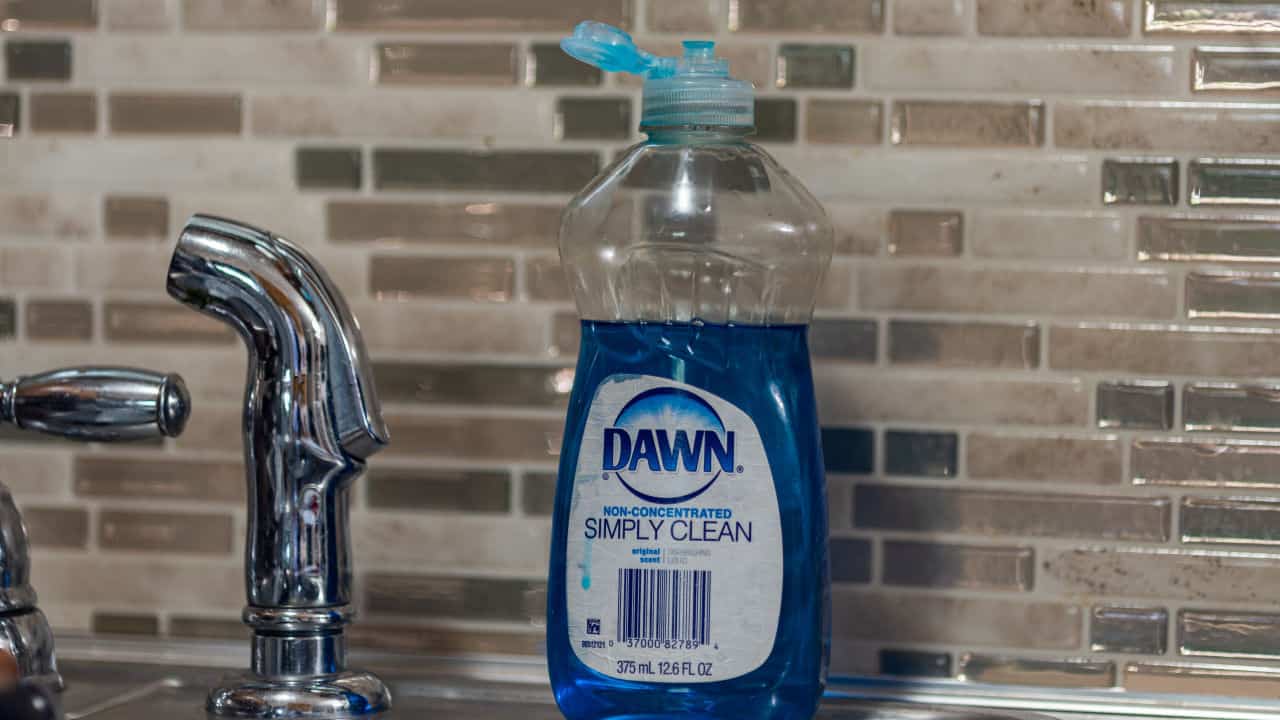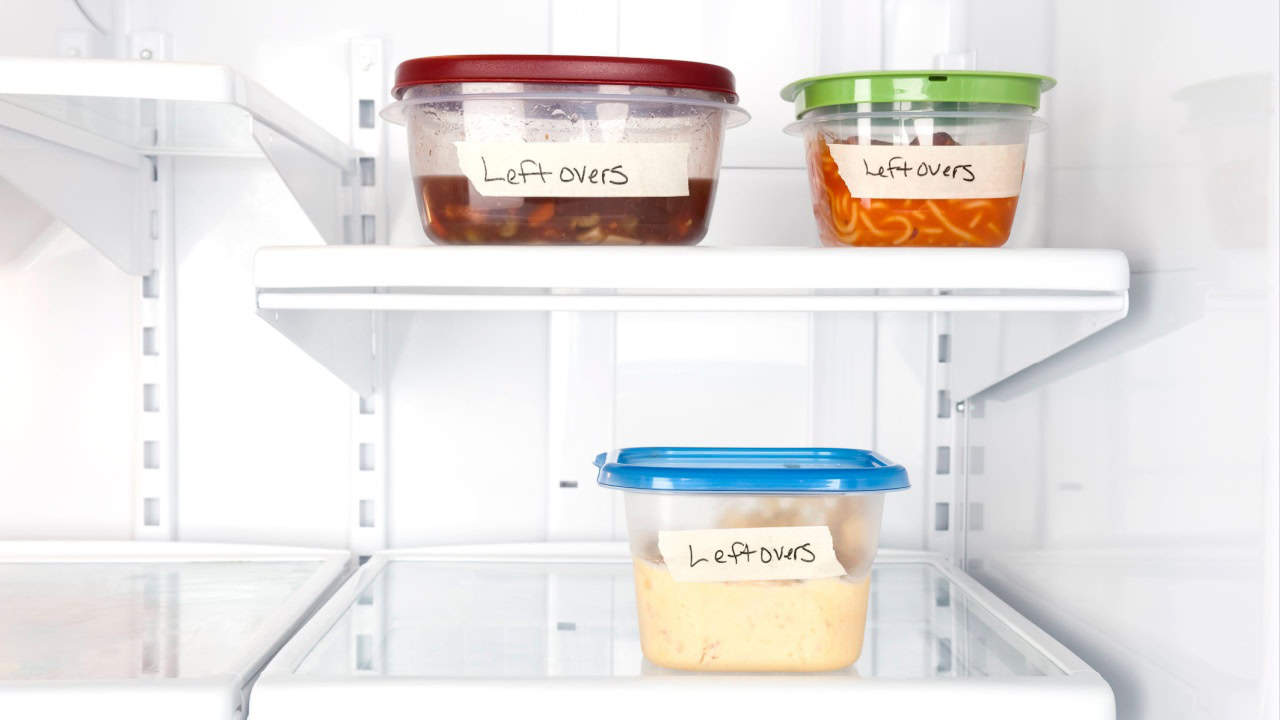THIS POST MAY CONTAIN AFFILIATE LINKS. PLEASE SEE MY DISCLOSURES. FOR MORE INFORMATION.
No matter what it might be, there are likely plenty of things in our lives that we use carelessly, which can lead to a great deal of waste. Some of us might wish to cut down on this waste to reduce our overall impact on the environment. Others may be more interested in making sure that they’re not spending money carelessly and getting the most out of the products they’re purchasing.
No matter your reasons for wanting to create a change in how you use certain products, there are strategies you can employ to ensure you’re using everything up and producing less waste (both in terms of money and in terms of how much product is left).
Let’s take a look at the 18 lifestyle changes to save more and waste less that we’ve found to be most effective in other people’s lives.
1. Embrace Mindful Eating

Mindful eating is an excellent way to make sure that you’re truly enjoying your food and reducing the amount of food on your plate to what you’re going to eat.
Be mindful of what you purchase and ask yourself, is this a craving that’s not going to last or will I truly enjoy this and eat all of what I’ve bought? If the answer is the former rather than the latter, you’ll know what to do!
2. Use Tube Squeezers for All of Your Hygiene Products


Whether it’s toothpaste, serum, or something else, hygiene products that come in tube packaging tend to go wasted because there’s so much left in the packaging when you’re no longer able to get any more out by traditional means.
Using dedicated tube-squeezing tools can help you get every last drop out of your cosmetics and other hygiene or self-care products. If you’re dealing with bottles, you can always cut them open instead.
3. Consider Switching to Reusable Kitchen Products


It’s very easy to stock up on parchment paper, disposable plates and utensils, and other single-use products that we can just throw away when we’re done with them. The problem?
While these items are convenient, they produce a ton of waste in the process. Switching to reusable kitchen products (for any activity) can help you greatly cut down on waste and save money since you won’t have to replace these items as often.
4. Start Using a Reusable Water Bottle


Water bottles are generally unnecessary as most tap water is drinkable. If it’s not to your liking, you could instead switch over to a home filtration system or use a filtration device and a reusable water bottle.
This will help you cut down on how many bottles you use, even if you do recycle them. Better yet, you won’t have to worry about running out and making a run to the store just to hydrate.
5. Buy Second Hand Clothing Items


The fast fashion industry that has come to be is extremely wasteful. You might notice this in your wardrobe, either throwing away pieces long before you thought you would or getting bored and hopping online to order more clothes.
This is why many will start buying secondhand clothing. Secondhand clothes are often just as good and may last you longer. This reduces your overall clothing waste and ensures you buy things you’ll wear for a long time.
6. Opt for Digital Communications Instead of Paper Bills or Reminders


Paper bills do have their uses, such as helping you when you’re at the DMV or allowing you to stay on top of your payments using a physical filing system. That being said, most organizations that send these bills may charge you a little bit extra.
Moreover, you’ll just end up throwing away these paper bills when you no longer need to access them. Opting in for digital statements and communications can help you cut down on paper waste and save a little extra in the process.
7. Purchase Produce As You Need It


Are you the type to purchase vegetables and fruit for the week, only to find that it goes bad before you’re able to enjoy any of it? If so, you’re not alone. Produce goes bad fast. The solution to constantly wasting vegetables?
Only buy the produce you need when you need it. While this does result in more trips to the grocery store, you won’t be throwing away as much fruit and vegetables as you normally do.
8. Plan Your Meals Out Ahead of Time


There’s nothing wrong with being spontaneous from time to time and throwing together meals when you need to. However, doing so could leave you with too much food that you are unable to eat or food that you aren’t quite satisfied with.
Many have found that planning their meals out ahead of time has allowed them to significantly cut down on food waste. If you have some extra time during the week, consider planning your meals out ahead of time and storing them in the fridge or your freezer.
9. Upcycle Old Items That No Longer Serve Their Intended Purpose


Just because something no longer works like it used to doesn’t mean that it’s not able to be used. So many have come up with creative ways to upcycle old items so that they don’t have to waste them.
This encompasses everything from smaller projects like converting milk cartons to storage organizers to using old tires as garden beds. If there’s something you can’t use for its intended purpose, you can probably find something else it might be useful for.
10. Add Water to Low Soaps and Detergents for One Final Use


Are you someone who uses liquid detergent, soap, and other liquid products around the house? If so, you’re undoubtedly throwing away perfectly good liquid because it’s too low to get a full pump out of it.
No matter whether you’re washing your hair or doing a load of laundry, always add water to the bottle when it starts to get low. You can get quite a bit more out of your liquid products and prevent yourself from throwing the remaining product away.
11. Track Your Energy Consumption Habits


Most people are guilty of using energy unnecessarily, but that’s because responsible energy consumption isn’t something that’s typically taught to most. Some great ways you can cut down on energy waste are to wash clothes with cold water and to keep your thermostat set at around 78 degrees.
If you’re looking to save money and reduce energy waste, try using your appliances during off-peak hours. Many electric companies will offer incentives for you to do this.
12. Take Advantage of Any Freebies You Can Find Online and Trade With Others


No-spend groups abound online. Many people want to reduce waste and save some cash. Connecting with no-spend groups can help you reduce waste by reusing something someone is willing to give away or trade for something that you don’t want to waste.
You get a great deal and the satisfaction of not having to throw something away.
13. Use Wool Dryer Balls to Get Rid of Static and Soften Clothes


Dryer sheets are quite common. But are they practical? People go through a lot of dryer sheets and produce a ton of waste in the process. If you’re looking for a viable alternative that helps you cut down on waste, consider wool dryer balls.
Wool dryer balls offer all of the same benefits as dryer sheets but can be reused for years before they need to be replaced.
14. Switch Out Disposable Razors With Safety Razors or Electric Trimmers


Disposable razors are the most common type of razors to come across when you’re shopping for various self-care goods. The biggest issue with these products is that they’re expensive for what they offer.
No matter how well you care for them, they need to be replaced constantly. Switching over to a safety razor or ditching razors entirely and buying an electric trimmer can help you put an end to razor waste and make your budget happy.
15. Visit Your Local Library


Not every book you buy or movie you watch is going to be a gem. More than a few might end up in the trash. This is why it’s always best to sign up for a local library card. With a library card, you’re able to read and consume a wide variety of media that you don’t have to hang onto if you don’t like it.
Even better, some libraries offer rentals for various appliances you might need around the home once or twice. All of these offerings can be a great way to reduce waste.
16. Give Into the Trend of Using a Bidet


The concept of a bidet used to be foreign to most, but it’s been picking up steam in recent years. People who own one have talked about how much toilet paper waste they’ve managed to avoid just by switching to a bidet.
If you’re willing to consider it, this might be a great way to reduce toilet paper consumption and physical waste production.
17. Grow Your Own Herbs


Herbs are one of the main grocery store goods that are easy to waste. If we only need a little bit of an herb for a recipe, the rest will likely sit in our fridge until it goes bad and we inevitably throw it away.
If you have a space for herbs like a windowsill that gets some sun or even a space on your kitchen counter where you can use a growing kit, grow your own herbs so that you have access to how much you need when you need it.
18. Freeze Leftovers You’d Otherwise Plan on Disposing of


One interesting waste reduction hack that people have been using is freezing leftovers they typically plan on throwing away. This can include anything from a few vegetables that went unused to pre-made dishes.
When you have collected enough, you can have your own little eclectic dinner consisting of leftovers or create something from the various meats and vegetables that you’ve saved.
19. Reassess Your Driving Habits


Many of us don’t think about how often we drive around, but being more mindful of this is a great way to save a significant amount of money. For starters, try to plan your trips together. If you have to run to a store, but know of another in the area you will also need to visit, do both at the same time. This avoids you having to go back out a second time a day later.
From there, see if there are ways you can reduce your trips. Maybe two stores are in one shopping center. Instead of driving to each, park in between the two and walk to both. Or, if a store is within walking distance, walk instead of driving.
20. Find Other Forms of Entertainment


Paying for cable or multiple streaming services adds up. If you find yourself not using these services that much or you endlessly scroll looking for something to watch, consider doing something else with your time.
Maybe you start reading more, doing jigsaw puzzles, knitting, or playing board games. You might even be able to make new friends in the process.
Slash Your Monthly Bills


With inflation rising, your monthly bills are likely getting out of control.
Luckily, there are some simple steps you can take. Use this guide to help you save up to $7,000 a year on your monthly bills.
SLASH YOUR MONTHLY BILLS AND SAVE
Best Frugal Living Tips


There is a misconception that living frugally means living a miserable life.
But the reality is, most frugal people are happier and wealthier.
Here are some simple steps to start living frugally and be happier as a result.
EASY FRUGAL LIVING TIPS FOR WEALTH
I have over 15 years experience in the financial services industry and 20 years investing in the stock market. I have both my undergrad and graduate degrees in Finance, and am FINRA Series 65 licensed and have a Certificate in Financial Planning.
Visit my About Me page to learn more about me and why I am your trusted personal finance expert.
Read the full article here














